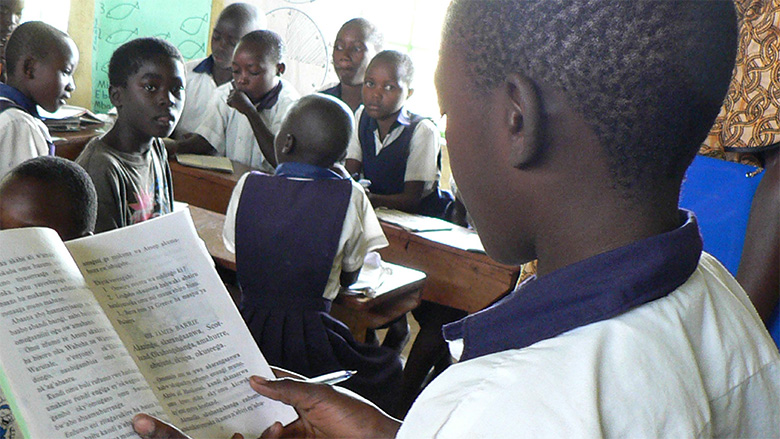The World Bank has said that millions of young students in low and middle-income countries mostly from Africa are not getting the best of education, a trend which could mean that they would lose on succeeding later in life.
The bank is warning of ‘a learning crisis’ in global education as well in its new Bank report by stating that schooling without learning was a wasted development opportunity, and a great injustice to children and young people worldwide.
The World Development Report 2018: ‘Learning to Realize Education’s Promise’ revealed that education will fail to eliminate extreme poverty and create shared opportunity and prosperity for all.
According to the report even though children have spent several years in school, millions of them cannot read, write or do basic math. This learning crisis is widening social gaps instead of narrowing them, according to the bank’s report.
“This learning crisis is a moral and economic crisis,” World Bank Group President Jim Yong Kim said.
“When delivered well, education promises young people employment, better earnings, good health, and a life without poverty. For communities, education spurs innovation, strengthens institutions, and fosters social cohesion. But these benefits depend on learning, and schooling without learning is a wasted opportunity. More than that, it’s a great injustice: the children whom societies fail the most are the ones who are most in need of a good education to succeed in life.”
The report has recommended that concrete policy steps are taken to help develop countries ability to deal with the looming learning crisis. Areas of importance include stronger learning assessments, using evidence of what works and what doesn’t to guide education decision-making; and mobilizing a strong social movement to push for education changes that champion ‘learning for all.’
“The only way to make progress is to ‘find truth from facts.’ If we let them, the facts about education reveal a painful truth. For too many children, schooling does not mean learning,” said World Bank Chief Economist, Paul Romer.
A former Peruvian Education Minister, and now the World Bank’s Senior Director for Education also said “Developing countries are far from where they should be on learning. Many do not invest enough financial resources and most need to invest more efficiently. But it is not only a matter of money; countries need to also invest in the capacity of the people and institutions tasked with educating our children,”
“Education reform is urgently needed and requires persistence as well as the political alignment of government, media, entrepreneurs, teachers, parents, and students. They all have to value and demand better learning.” said Jaime Saavedra.
Source: Africafeeds.com



